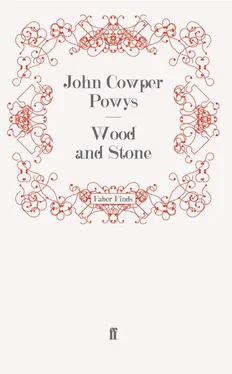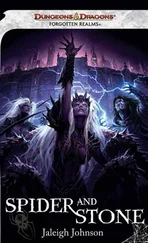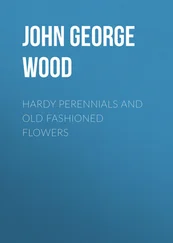This instinctive division of taste between the two, had led, over and over again, to all manner of friendly dissension.
Luke recalled how often he had rallied James upon his habit of drifting into what the younger brother pertinently described as a “translunar mood.” He was “translunar” enough now, at any rate; but now it was in honour of that other “lady of the night,” of that dreadful “double” of his moon-goddess — the dark pomegranate-bearer — that the candles must be lit!
Luke revived in his mind, as he watched the slow-shifting shadows move from grave to grave, all those indescribable “little things” of their every-day life together, the loss of which seemed perhaps worst of all. He recalled how on gusty December evenings they would plod homeward from some Saturday afternoon’s excursion to Yeoborough, and how the cheerful firelight from the station-master’s house would greet them as they crossed the railway.
So closely had their thoughts and sensations grown together, that there were many little poignant memories, out of the woven texture of which he found himself quite unable to disentangle the imaginative threads that were due to his brother, from such as were the evocation of his own temperament.
One such concentrated moment, of exquisite memory, he associated with an old farm-house on the edge of the road leading from Hullaway to Rogerstown. This road, — a forlorn enough highway of Roman origin, dividing a level plain of desolate rain-flooded meadows, — was one of their favourite haunts. “Halfway House,” as the farm-dwelling was called, especially appealed to them, because of its romantic and melancholy isolation.
Luke remembered how he had paused with his brother one clear frosty afternoon when the puddles by the road-side were criss-crossed by little broken stars of fresh-formed ice, and had imagined how they would feel if such a place belonged to them by hereditary birthright, what they would feel were they even now returning there, between the tall evergreens at the gate, to spend a long evening over a log fire, with mulled claret on the hob, and cards and books on the table, and a great white Persian cat, — this was James’ interpolation! — purring softly, and rubbing its silky sides against Chinese vases full of rose-leaves.
Strange journeys his mind took, that long unforgettable afternoon, — the first of his life spent without his brother! He saw before him, at one moment, a little desolate wooden pier, broken by waves and weather, somewhere on the Weymouth coast. The indescribable pathos of things outworn and done with, of things abandoned by man and ill-used by nature, had given to this derelict pile of drift-wood a curious prominence in his House of Memory. He remembered the look with which James had regarded it, and how the wind had whistled through it and how they had tried in vain to light their cigarettes under its shelter.
At another moment his mind swung back to the daily routine in their pleasant lodging. He recalled certain spring mornings when they had risen together at dawn and had crept stealthily out, for fear of waking their landlady. He vividly remembered the peculiar smell of moss and primroses with which the air seemed full on one of these occasions.
The place Luke had chosen for summoning up all these ghosts of the past held him with such a spell that he permitted the church-bells to ring and the little congregation to assemble for the evening service without moving or stirring. “Hugh and Constance Foley” he kept repeating to himself, as the priest’s voice, within the sacred building, intoned the prayers. The sentiment of the plaintive hymn with which the service closed, — he hardly moved or stirred for the brief hour of the liturgy’s progress, — brought tears, the first he had shed since his brother’s death, to this wanton faun’s eyes. What is there, he thought, in these wistful tunes, and impossible, too-sweet words, that must needs hit the most cynical of sceptics?
He let the people shuffle out and drift away, and the grey-haired parson and his silk-gowned wife follow them and vanish, and still he did not stir. For some half-an-hour longer he remained in the same position, his chin upon his knees, staring gloomily in front of him. He was still seated so, when, to the eyes of an observer posted on the top of the tower, two persons, the first a woman and the second a man, would have been observed approaching, by a rarely-traversed field-path, the side of the enclosure most remote from Hullaway Green.
The path upon which these figures advanced was interrupted at certain intervals by tall elm-trees, and it would have been clear to our imaginary watcher upon the tower that the second of the two was glad enough of the shelter of these trees, of which it was evident he intended to make use, did the first figure turn and glance backward.
Had such a sentinel been possessed of local knowledge he would have had no difficulty in recognizing the first of these persons as Gladys Romer and the second as Mr. Clavering.
Gladys had, in fact, gone alone to the evening service, on the ground of celebrating the close of her baptismal day. Immediately after the service she had slipped off down the street leading to the railroad, directing her steps towards Hullaway, whither a sure instinct told her Luke had wandered.
She was still in sight, having got no further than the entrance to Splash Lane, when Clavering, who had changed his surplice with lightning rapidity, issued forth into the street. In a flash he remarked the direction of her steps, and impelled by an impulse of mad jealousy, began blindly following her.
Not a few heads were inquisitively turned, and not a few whispering comments were exchanged, as first the squire’s daughter, and then the young clergyman, made their way through the street.
As soon as Gladys had crossed the railroad and struck out at a sharp pace up the slope of the meadow Clavering realized that wherever she intended to go it was not to the house in which lay James Andersen. Torn with intolerable jealousy, and anxious, at all risks, to satisfy his mind, one way or the other, as to her relations with Luke, he deliberately decided to follow the girl to whatever hoped-for encounter, or carefully plotted assignation, she was now directing her steps. How true, how exactly true, to his interpretation of Luke’s character, was this astutely arranged meeting, on the very day after his brother’s death!
At the top of the station-field Gladys paused for a moment, and, turning round, contemplated the little dwelling which was now a house of the dead.
Luckily for Mr. Clavering, this movement of hers coincided with his arrival at the thick-set hedge separating the field from the metal track. He waited at the turn-stile until, her abstraction over, she passed into the lane.
All the way to Hullaway Mr. Clavering followed her, hurriedly concealing himself when there seemed the least danger of discovery, and at certain critical moments making slight deviations from the direct pursuit.
As she drew near the churchyard the girl showed evident signs of nervousness and apprehension, walking more slowly, and looking about her, and sometimes even pausing as if to take breath and collect, her thoughts.
It was fortunate for her pursuer at this final moment of the chase that the row of colossal elms, of which mention has been made, interposed themselves between the two. Clavering was thus able to approach quite close to the girl before she reached her destination, for, making use of these rugged trunks, as an Indian scout might have done, he was almost within touch of her by the time she clambered over the railings.
The savage bite of insane jealousy drove from the poor priest’s head any thought of how grotesque he must have appeared, — could any eyes but those of field-mice and starlings have observed him, — with his shiny black frock-coat and broad-brimmed hat, peeping and spying in the track of this fair young person.
Читать дальше












